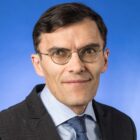That we are living through difficult times is clear for all to see
We are facing the most serious socio-economic and health crisis of recent times, as the UN has pointed out in its report “Shared responsibility, global solidarity: Responding to the socio-economics impacts of COVID-19“.
The scenario of uncertainty raised by this pandemic looms over the 2030 Agenda and the Sustainable Development Goals (SDG’s) that were approved in 2015, and the future social and economic effects seriously threaten its fundamental principle of “leaving no one behind.”
COVID-19 has had and continues to have a dramatic impact on people with disabilities, a group of more than 1 billion people worldwide and around 100 million in Europe. The inequalities that they already have to deal with in normal circumstances have got worse with this pandemic. The Secretary General of the United Nations, António Guterres, has condemned this and has stated that “we must guarantee the same rights of access to health care and life-saving procedures for people with disabilities.” He has also urged governments to place people with disabilities at the heart of their COVID-19 response and recovery efforts.
The EU and all member countries have ratified the International Convention on the Rights of Persons with Disabilities. This supposes a commitment within which promotion and protection of the human rights of people with disabilities is secured in both the domestic and European dimensions. Thus, Article 11 of the Convention, covering situations of risk and humanitarian emergencies, highlights the Convention’s obligation to adopt “all necessary measures to guarantee the safety and protection of persons with disabilities” in such cases. To achieve this, we must incorporate disability into activities to prepare and respond to emergency situations such as the one we have just lived through, and give recognition to disability issues and people with disabilities in action plans, policies, financial resources and domestic and international measures that are approved.
This is not the time to think about our own interests, nor for recrimination or for exclusion, but for solidarity, cooperation and trust. In the aforementioned report, the UN appeals for unity of action between countries in order to respond to the challenges that face us in the future, and points to the need to adopt a human rights-based approach in any measures taken to address this situation, taking into account singular factors such as age, gender, or disability, among others.
Within the framework of the Disability Thematic Network of the European Foundation Centre, we were given the opportunity to prepare a publication which aims to highlight the role of foundations in Europe and their contribution to social and employment inclusion of people with disabilities from the perspective of SDG’s. I invite you to take a look at the fully accessible ‘European Philanthropy at the nexus of disability and the SDGs’ . I would like to take this opportunity to thank the foundations that have contributed to this publication.
In these times we are living through it is beyond doubt that the philanthropy sector has an important role to play, because as this publication clearly shows, we can all make a contribution, however small. As a sector, we have clearly shown that we can act quickly and specifically to respond to the contingencies posed by COVID-19. It is our obligation as foundations to play a responsible role in this situation and, to the best of our ability, we can and must help to mitigate the economic and social repercussions of the pandemic.
Being faced with an adverse situation like the one we are living through, is a great opportunity for us to raise the profile of the valuable job that we have always done in our day-to-day life and to exercise with dignity our much-needed role in the recovery, and be a reference and do it from a position that allows us to transmit a message of solidarity, cohesion and trust in the journey towards a just transition.
Authors

Vice President of Fundación ONCE